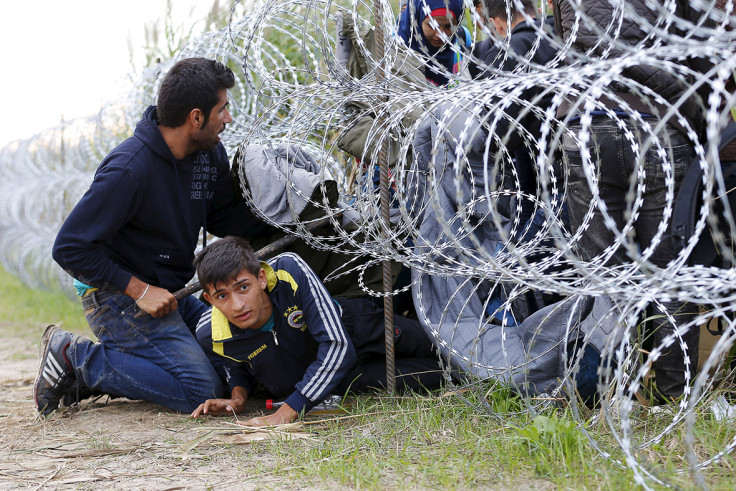Two decades of borderless Europe ends as border checks are imposed to check influx of migrants

European Union's Schengen system has finally unravelled after being in place for two decades as Germany, Austria and Hungary rush to impose border controls to check the unprecedented influx of migrants trying to enter the region.
Hungary has sent in the police and army to man its informal crossing point into the EU while Austria is also beefing up its police team with military forces to carry out checks at the border with Hungary.
Reuters said that by 14000 GMT on Monday, a total of 7,437 migrants were recorded entering Hungary from Serbia, making it the highest arrivals by land in a single day. The previous day, the total stood at 5,809, according to police.
Slovakia has said that it would also impose controls on its borders with Hungary and Austria while Netherlands has announced spot checks at its borders.
"If Germany carries out border controls, Austria must put strengthened border controls in place," Vice Chancellor Reinhold Mitterlehner told a joint news conference with Chancellor Werner Faymann.
Sweden and Poland have said they are monitoring the situation and will decide whether controls are needed.
The news agency said helmeted Hungarian police, some on horseback closed off the main informal crossing point, backed by soldiers as a helicopter circled overhead. A goods wagon covered with razor wire is being used to block a railway track used by migrants to enter the EU.
Schengen, which was named after a Luxembourg town where the deal was reached, removes frontier posts across the continent since 1995. A total of 26 European countries issue common visas and leave the borders between them unguarded.
The UK however is not part of the Schengen pact. Although the rule prevents undocumented migrants from travelling within the Schengen zone, there are few barriers to stop them from doing so.
This has resulted in hundreds of thousands of people, including refugees from war zones in the Middle East, arriving on the bloc's southern and eastern edges and trekking on to rich countries further north and west, Reuters said.
Hungary's Prime Minister Viktor Orban has said that a metal fence will run the length of the frontier with Serbia by October.
From today (15 September), Hungarian authorities will receive and process asylum requests at the border with Serbia, and transport those who apply to camps elsewhere in the country. Those who refuse to cooperate will be held at the border and possibly expelled while those who try to cross evading police face arrest.
"If someone is a refugee, we will ask them whether they have submitted an asylum request in Serbia. If they had not done so, given that Serbia is a safe country, they will be rejected," he told private broadcaster TV2.
He said police officers have been told to be humane but uncompromising.
Demise of Schengen should be welcomed
The Telegraph said the demise of the Schengen should be welcomed. "Like monetary union, Schengen was a late 20th-century solution to a 21-st century problem."
It noted that although labour mobility is a good thing, there should be a system of migration control that is able to differentiate between "a French business woman going to Milan or Frankfurt for the day and a migrant looking to move permanently from one continent to another.
"Schengen makes it impossible to differentiate between the two." The newspaper noted that the EU, which is run by a technocratic elite, does not innovate unless "forced by the gravity of a crisis to change."
© Copyright IBTimes 2025. All rights reserved.




















